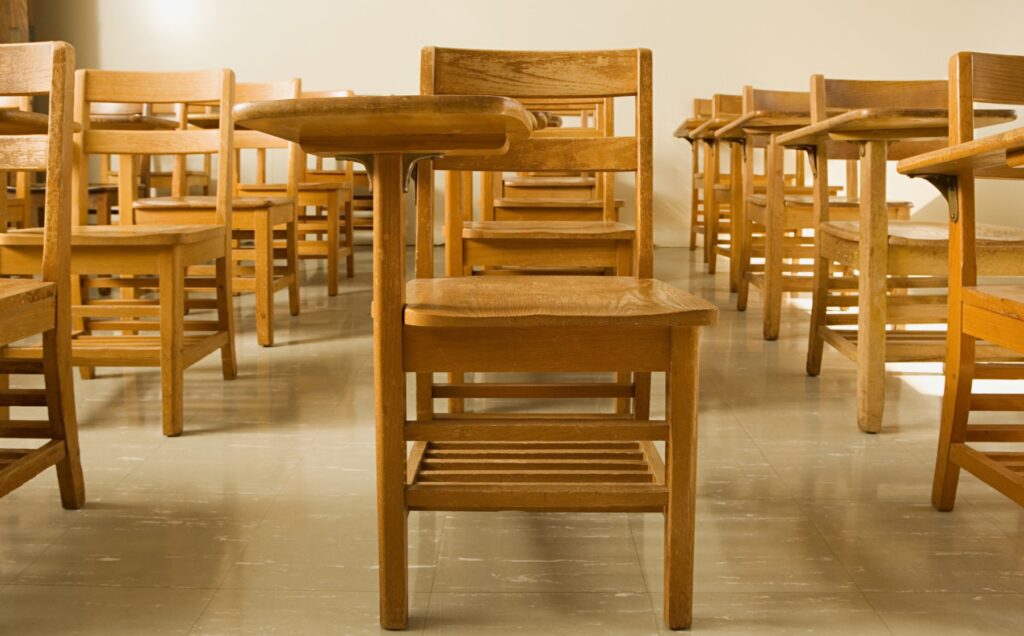
Unfortunately, dealing with a student’s death is an issue that most of us will deal with at some point in our teaching careers. I’m half way through my career. I’ve had former students die in the past, some of natural causes, some in car accidents and some by suicide. Most of them were either out of school or in high school. This past year, one of my current students died suddenly. He was twelve years old. It was a random accident, one that no one could foresee, and its suddenness was shocking. A child, a person who hadn’t even grown to his full size, who still stood shorter than me. The fact that he didn’t get to experience a full life, the depth of life. It’s just infuriating.
This essay is selfishly cathartic. Although it’s been seven months, I’m still processing, and I want closure. I still feel the need to think through my experience. At the same time, I hope that this might be of some use to other educators. One of my odd habits in the days that followed his death was that I felt a need to read every news story. I would look at Google, I would see that his story had been shared across the country, and even across the world. I wanted to know every detail. I was looking for an answer, for a reason that didn’t exist. If this post pops up for another teacher when they are faced with similar circumstances, I hope it helps them to breathe. Therefore, this essay is set up to offer some advice and maybe some solace.
——————————————
When a student dies, you won’t sleep for a few days. If you do, the same thought, a replay of the events, will lie on the surface of your dreams, and it will repeat on an endless loop. I was home when it was announced that he was missing, and it was about 11 p.m. when they announced that he had died. The shock, the suddenness kept me awake. He had just been in my class that day. What had been his last thoughts, what had been his last comments? I kept asking myself those questions over and over.
When a student dies, you will find that you have to tell some of his classmates about his death the next morning. Our school is rural, so some students don’t have the internet or smart phones. Before my first class the morning after his death, I stood at my door like always. The hallway was practically empty, with only a few students clutching each other and sobbing. A student came up to me and asked me why everyone was crying. I was then faced with the responsibility of telling him what had happened.
When a student dies, your administrators might tell you to keep things “normal” in class. Experts say that kids need structure and routine when a crisis occurs, and I can attest that this is true. I found myself doing so because it was the only thing I functionally could do. For the next few weeks, I would just sit on my couch every evening and eat mindlessly. When I was in school, I taught.
When a student dies, the first words you utter to your class really matter. Some of your students will look numb, some will just stay home, some will cry, and some of them will be waiting for you to tell them how to feel. I reminded my classes that grief comes in all forms. That however they were feeling, that their feelings were natural, and that it was okay to have those thoughts and emotions. In all honesty, I was just talking because I couldn’t bear the silence. Still, I could see a split second of relief flash on their faces. For my students, the day after had an unfortunate familiarity. Another student had died 9 months previously, in a similar accident. They were in shock partially because they couldn’t believe it had happened again.
When a student dies, you will feel guilty. I felt guilty because I didn’t know him as well as some of the other teachers in my grade. It was only December, and I was just beginning to really get to know who my students were as people. I knew he was smart, and that he was funny, but I didn’t really know him on a personal level. Some of the other teachers I work with had their own children in the same grade, so they knew him much better. My guilt was stupid and selfish, but still, it was there.
When a student dies, you should switch up the desks and the seating chart after the first day. The void will still be there, but it doesn’t need to be tangible. Change the seats and move the desks. That way, no student will feel like they took over that spot, and they won’t be staring at that particular seat.
When a student dies, you will see all kinds of grief among his classmates. Their grief is raw, often unfiltered and awkward. It was so palpable in the days that followed that I could read it on their faces, I could see it in the way that they stood, I could feel it with every interaction. Sometimes that will make comments that shouldn’t have been made, and you’ll be faced with the task of talking to them about those comments. They are so very human and awkward at the middle school age, and the levity of a death doesn’t remove their awkwardness. Others will move on quickly and easily. That’s okay also.
When a student dies, you will realize that the student/teacher relationship is difficult to define for non-teachers. Your students aren’t your friends, and you’re not their parents. Still, there’s a closeness there that can’t really be explained. All you know is that it wasn’t just a student who died.
When a student dies, you should go to the grief counseling, even if you think you’re okay. I thought I was okay. The other teachers were practically inconsolable, so I didn’t recognize my own grief. If you have a humane administration, they will give you time to take a break from your day and go. Go.
When a student dies, you will find yourself angry at those who don’t know, or who aren’t aware, or who don’t get why you feel so devastated. Don’t be. As I stated, those who are non-teachers don’t understand the student/teacher relationship. Other people don’t need to recognize your grief for it to exist.
When a student dies, you will eventually move on. For reasons of self-preservation, for distraction, because you are still alive, and because your students need to move on also. The first time you make a joke, and your students laugh, it will feel good, familiar, comforting. Allow that feeling.
——————————————
Maybe all of the above was just me, and what I went through. I hope you never have to experience this in your teaching career. If you do, know that there are many teachers out there who have experienced the same and that they are with you.
These are just the words of a singular teacher on the internet. If your grief is overwhelming, please seek professional help.

4 Responses
Thank you for this. A few months ago I lost an old student who I was really close to. When he was in my class, he was a little mischievous and sat right up against my desk. We created a bond because of this. At the end of the year, he took the name tag off of his desk and taped it to the side of mine. He made me promise to never take it off, and I didn’t and will never take it off. When I heard the news that Ruben was hit by an ice cream truck while on his skateboard, I broke. Many teachers didn’t understand my reaction because he was “just a student.” I guess that’s the difference between other teachers in my school and myself. The night of the funeral I couldn’t bring myself to go. I sat in the parking lot and cried. Sometimes I feel guilty but I know he remembered me as the teacher I was to him. Your essay really helped me not suppress the feelings I was having anymore and to know that I am not alone with the feelings I was having.
-Joely Serino @high_heels_and_highlighters
Oh, your comment just made me tear up again. We’re in an unfortunate group, but at least we understand each other.
Unfortunately I have attended the funerals of 5 of my former students (i teach middle school). I don’t know if I can consider myself lucky in the fact that they were either 1)graduated 2) already in high school, or 3) it was summertime. But it did make it a little easier not seeing the empty desk the next day.
Three years ago we had a teacher in our school who had a sudden heart attack over the weekend. His son was in my first period class and he showed up to school on that Monday. I had no idea what to do. I just turned off the lights and his friends hugged and loved on him. I still tear up typing this. My lesson from that…it’s okay to let the kids see their teachers grieve. It lets them know that it’s okay to cry.
Thanks for sharing.
I had a fellow colleague die over the summer. He was only 39. If there’s a silver lining in all of it, it’s that it brings those who are left closer together.